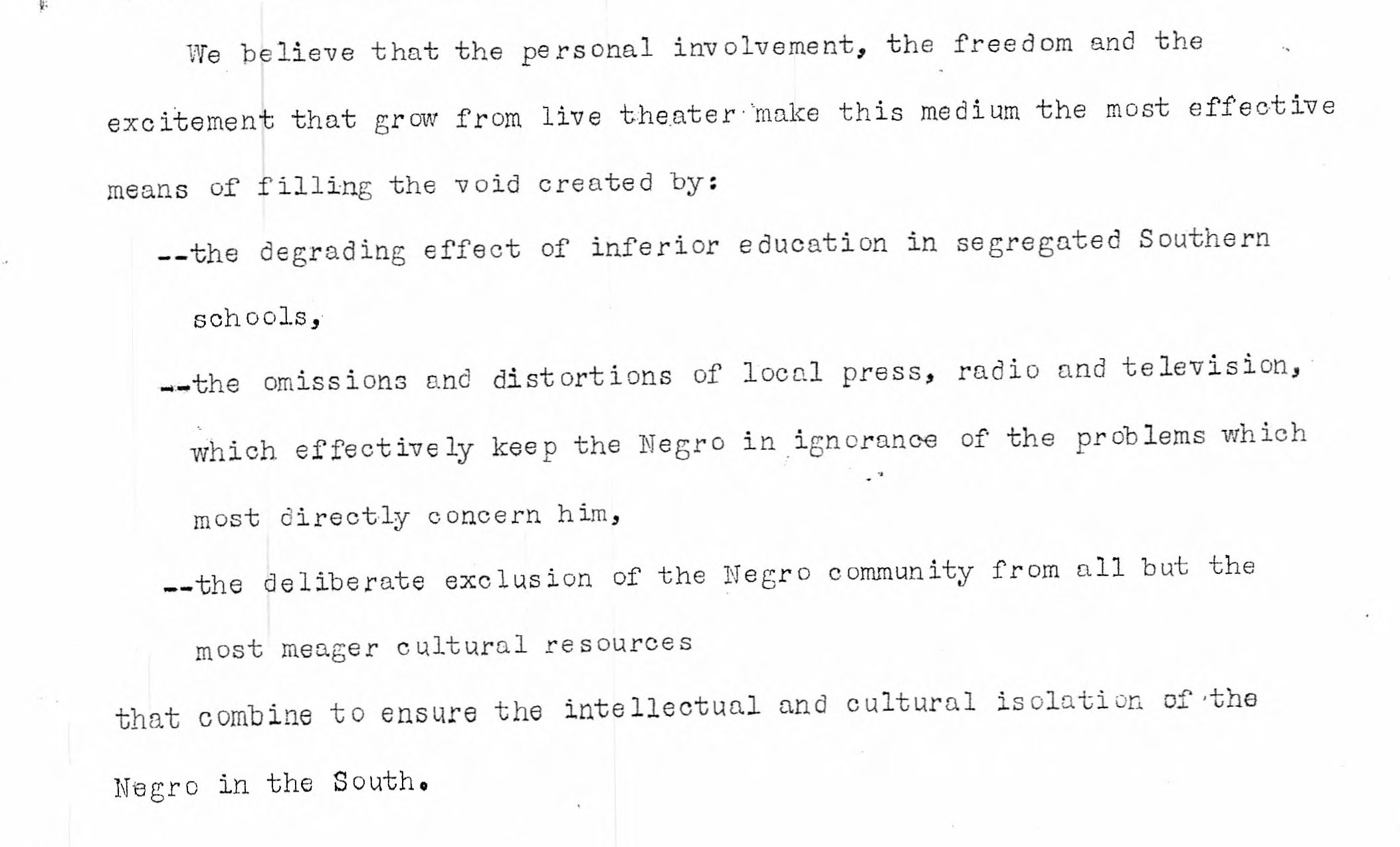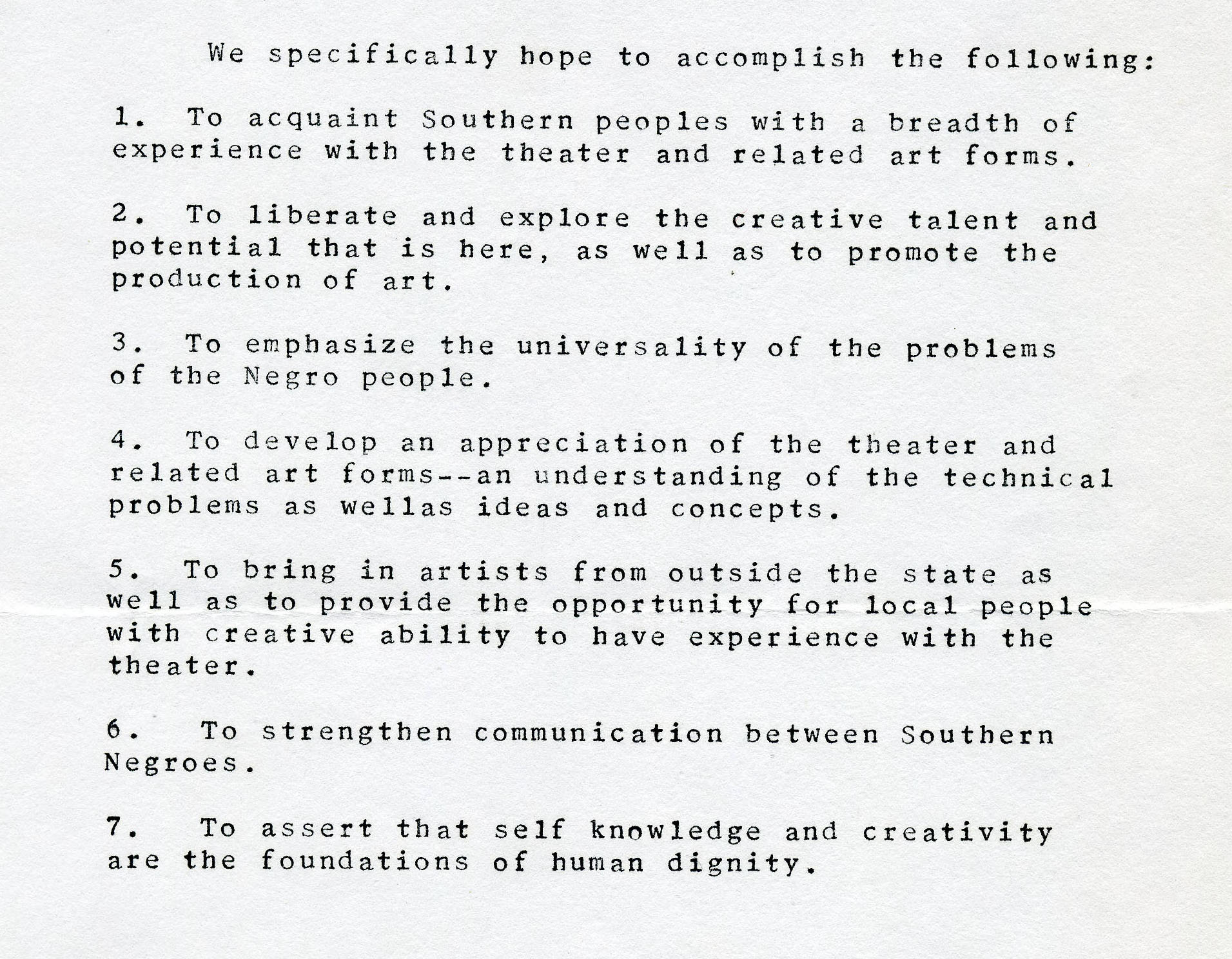The Establishment of a Free Southern Theater
A Theater with Purpose
Creating a theater company connected with the organized movement for civil rights in Mississippi required sustained commitment and strategy. O’Neal, Moses, and Derby not only had to convince movement organizers of their plan and gain support for the time it would take, they had to raise the funds necessary to support their endeavor. Key support from William Hutchinson, the Drama Director at Tougaloo College, anchored their project with a home and a crop of students interested in participating. From this base at Tougaloo College they workshopped their ideas and developed two key documents which would become the basis for sharing their vision throughout the movement and the American theater community; Proposal for a Free Southern Theater and A General Prospectus for the Establishment of a Free Southern Theater.
In addition to mapping out the logistics for the development of a Free Southern Theater such as technical needs and the types of plays which would be presented, O’Neal, Moses, and Derby outlined the circumstances which defined the “oppressive system in the South” and the outcomes they expected to achieve through their work. This attention to practical impacts of theater work which could directly address oppressive circumstances was an innovation in community-based arts practice.
The Circumstances of Oppression

Outline of circumstances of oppression found on page one of the Proposal for a Free Southern Theater. A more expansive list can be found under the heading Mississippi--The Caste System in a Cultural Desert on page two of the Prospectus.
Outcomes Expected from the Work

Outline of the outcomes expected from the theater company’s work found on page one of the General Prospectus for the Establishment of a Free Southern Theater. Similar but alternate outcomes listing on page two of The Proposal.
This interlacing of outcomes for creative growth and exposure to the technical aspects of the arts with practical movement based goals of strengthening communication within the Black community toward an awareness of broad universality to the problems Mississippi Black communities faced was a revolutionary use of theater. During a historical period in which experimentation in participatory art practice was emerging in various forms around the nation and the globe, the direct application within anti-oppression work exhibited by Free Southern Theater was unique in America.
daniel@significantdevelopments.us — Jackson, Mississippi